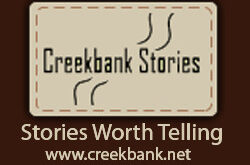Resolve This week I’m thinking about the word “Resolve “ and its double first cousins, Grit, Determination and Perseverance. “Resolve: to act with determination, boldness, steadfastness, and faith.” Resolve: it’s a good word to have in our toolbox.
Read More »It’s the 8th of January . . . and this is why it’s important.
Today is January 8, 2024 It’s the 8th of January and not just any ordinary day. Here’s why: “The Eighth of January” is a fast-paced fiddle song dating back to the Nineteenth century. My great-grandmother, Theodosia Iles, was the Beauregard Parish Fair fiddle champion for most of her adult life, and she owned “The 8th of January.” Years later, one …
Read More »The 100 Foot Line: Thoughts on Forest Fires
The 100-Foot Line There’s a fine stand of young slash pine at Dead Man’s curve on the Longville Road. I’ve watched the growth of this forest since it was clear cut, then replanted in straight rows. The following year, the pines began to poke their heads above the grass. They’ve emerged above the surrounding bushes and scrub …
Read More »The Red Cedars
The Red Cedars at The Old House January 1, 2024 This red cedar coaster has a remarkable story. It comes from the limb of one of the majestic cedar trees in the front yard of The Old House. When a pecan tree recently crashed on The Old House roof, the cedar’s limbs limited the damage. The coaster you hold came …
Read More »The Best Trade: A Christmas Tree for a Basket of Jelly
The Best Trade: A Christmas Tree for a Basket of Jelly This story from my first book, Stories from the Creekbank, is still a favorite of readers of all ages. I hope you enjoy it. Merry Christmas to all of my friends. -Curt Christmas jelly is probably my favorite holiday gift. Yearly, I receive this present from a …
Read More »Chet and Michael: The Deer Hunter
The Deer Hunter Tuesday, December 12, 2023 There are some people you fall in love with the first time you meet them. That was true of Chet, and it was also true of Michael. I first met Chet in early November when he approached a breakfast table of men. It was the first week of deer season. One of the …
Read More »A Short Sermon
Straight Out Of Yale As I’ve followed the brouhaha around the presidents of Harvard, Penn, and M.I.T., I’m reminded of one of my favorite stories: A young man from a smaller church felt called to preach and entered Yale’s Divinity School. After one year at Yale, he triumphantly returned home and was invited to preach at his home …
Read More »Bald-Faced Liars
A Bald-Faced Liar “He’d rather climb a tree to tell a lie rather than stand on the ground and tell the truth.” Where I come from, calling someone a bald-faced liar are fighting words. What’s the difference between a lie and a bald-faced lie? A lie is telling untruth. It’s wrong. It’s a sin. “Do not swear false …
Read More »The Key Sentences in ‘Where We All Belong’
Friends and Readers, We’re putting the final touches on our upcoming novel, Where We All Belong. Don’t give up on us. There are many moving parts in getting a book into your hands. I really believe the final product will be worth the wait. Remember, it takes a village to raise a book and you’re a part of …
Read More »“A Tree Fell on the Old House.”
“The Old House at Night.” by Bill Iles 1963 “A Tree Fell on the Old House.” “As a man thinketh in his heart, so is he.” Proverbs 23:7 I’ve always dreaded it, but knew it’d happen one day. My sister’s message was short, “A tree fell on the Old House last night during the storm.” Before I tell you …
Read More »A Ugandan Thanksgiving
A Ugandan Thanksgiving In everything give thanks; for this is the will of God in Christ Jesus for you. -I Thess. 5:18 Thanksgiving has always been my favorite holiday. It’s free of commercial crassness and a time for family and sincere gratitude. Thanksgiving gives us room to take a big breath and simply be thankful. Thanksgiving became special …
Read More »Lost at Sea: Remembering Milton Tinsley
Lost at Sea: Remembering Milton Tinsley It’s Veteran’s Day and a time to honor those who served our country in times of need. It’s an excellent time to remember veterans who have been forgotten. It’s a good time to remember Milton Tinsley. He has a simple marker at Hopewell Community Cemetery near DeRidder, Louisiana: Milton Tinsley Lost at Sea I …
Read More »Aunt Margie’s Hands
This week’s blog post: Aunt Margie’s Hands I still believe my Aunt Margie Nell had the most beautiful hands in the world. I miss those hands on the piano. Although I miss Aunt Marge’s hands, I miss her heart the most. Marjorie Nell Iles Walker was my Dad’s younger sister. During her lifetime, she was SW Louisiana’s most renowned pianist. …
Read More »Leaders Eat Last
Leaders Eat Last Thoughts on Servant-Leadership “For even the Son of Man did not come to be served, but to serve, and to give His life a ransom for many.” Mark 10:45 I’ve recently discovered a fascinating book, ‘Leaders Eat Last’ by Simon Sinek. The book’s premise comes from the United States Marine tradition, where officers will wait until the …
Read More » Creekbank Stories Curt Iles, Storyteller
Creekbank Stories Curt Iles, Storyteller





